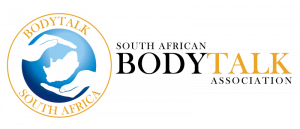Are you interested in a Career in BodyTalk?
Becoming a BodyTalk Practitioner is one of the most rewarding Careers to have. Not only are you assisting in the healthcare of people, animals and/or the environment, but you are also continuously improving your own health and wellbeing. The BodyTalk System Practitioner training has no pre-requisites and anyone can learn how to become a BodyTalk Practitioner. The courses are self-contained and you will learn everything you need to know through the IBA Course work. Becoming a Certified BodyTalk Practitioner is a way to build a professional practice that fits into your life, however you would like it to. Whether full-time, part-time or just for friends and family,the training and perspective you will gain with the International BodyTalk Association will change the way you view healthcare forever.
STEPS TO FOLLOW IN BECOMING A CERTIFIED BODYTALK PRACTITIONER
STEP ONE: Attend a BodyTalk Fundamentals Course
If you have attended an Access Course, the next step will be to attend a BodyTalk Fundamentals course and if you have just completed BodyTalk Fundamentals, you are well on your way.
STEP TWO: Spend some time studying all that you have learnt and integrate the knowledge by practicing on friends and family. You may want to join a Student Development Program if offered in your area or make contact with fellow students and form study groups. A Student Development Program is a mentorship program that runs over six weeks with weekly meetings. The Program breaks down the BodyTalk Protocol Chart into smaller units to focus on with lots of room for questions and answers as well as practice. Enquire with your instructor if and where this is offered. (Currently available in Johannesburg – approximately R2500 to R3000)
STEP THREE: Complete and document fifty BodyTalk Sessions with a minimum of 15 different people without the use of a BodyTalk Protocol Chart, BodyTalk Procedure Chart or Manual (unless using the Appendices). This is designed to allow you to become more familiar with the techniques and the system as a whole. A form will be sent to you for you to document your sessions and to ensure that you have all the relevant information.
STEP FOUR: Receive a minimum of five BodyTalk sessions from a CBP and provide documented evidence of such. This will enable you to see how a professional session is conducted as well as the procedures for booking sessions and follow up sessions. (Cost of sessions is specific to Practitioners)
STEP FIVE: Become a member of the IBA. Standard Membership is fine at this stage – $100. Once you pass your exams, this can be upgraded to Practicing Membership – $300. Joining the South African BodyTalk Association (SABA) will also be advantageous as you will receive a local website listing. SABA Membership is R50 per month for Students and R150 for Practicing Members.
STEP SIX: Either attend BodyTalk Fundamentals for a second time, at a reduced cost, OR take the BodyTalk Fundamentals Integration class with any CBI. (Depending on your membership level, you may be eligible for up to 75% discount on retaking an IBA seminar. Members only have to pay 25% of the cost of the course to monitor. (Cost of Courses is specific to Instructors)
STEP SEVEN: Sit your Exam. Study for the Fundamentals exam (Practice Exam and tips are located in the Members Area of the IBA website). Set up a time to take the Fundamentals Exam with any CBI (Certified BodyTalk Instructor). Take and pass the oral and written examinations with a minimum pass rate of 90%. The exam cost is $250 USD, payable to CBI prior to start of exam and a $50 processing fee payable to the IBA upon submitting certification.
PLEASE NOTE: You will be required to sign the CBP agreement on passing your exam. It is important to note that you may not practice as a Practitioner without having a current IBA membership. If this lapses for longer than 4 years, you will be required to resit Fundamentals and re-do your CBP exam. It is also important to be aware that in order to maintain CBP status, you need to complete 32 CEU (Continued Education Units) every 2 years and adhere to the Code of Ethics.




